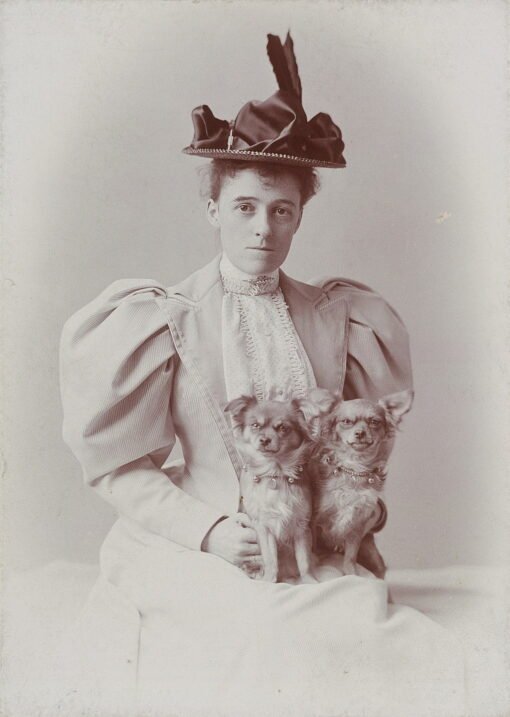Edith Wharton was born Edith Newbold Jones on January 24, 1862, to George Frederic Jones and Lucretia Stevens Rhinelander at their brownstone at 14 West Twenty-third Street in New York City.
Despite not publishing her first novel until she was forty, Wharton became an extraordinarily productive writer. In addition to her 15 novels, seven novellas, and eighty-five short stories, she published poetry, books on design, travel, literary and cultural criticism, and a memoir.
In 1873, Wharton wrote a short story and gave it to her mother to read. Her mother criticized the story, so Wharton decided to just write poetry. While she constantly sought her mother’s approval and love, it was rare that she received either. From the start, the relationship with her mother was a troubled one. Before she was 15, she wrote Fast and Loose (1877). In her youth, she wrote about society. Her central themes came from her experiences with her parents. She was very critical of her work and wrote public reviews criticizing it. She also wrote about her own experiences with life. “Intense Love’s Utterance” is a poem written about Henry Stevens.
In 1889, she sent out three poems for publication. They were sent to Scribner’s, Harper’s and Century. Edward L. Burlingame published “The Last Giustiniani” for Scribner’s. It was not until Wharton was 29 that her first short story was published. “Mrs. Manstey’s View” had very little success, and it took her more than a year to publish another story. She completed “The Fullness of Life” following her annual European trip with Teddy. Burlingame was critical of this story but Wharton did not want to make edits to it. This story, along with many others, speaks about her marriage. She sent Bunner Sisters to Scribner’s in 1892. Burlingame wrote back that it was too long for Scribner’s to publish. This story is believed to be based on an experience she had as a child. It did not see publication until 1916 and is included in the collection called Xingu. After a visit with her friend, Paul Bourget, she wrote “The Good May Come” and “The Lamp of Psyche”. “The Lamp of Psyche” was a comical story with verbal wit and sorrow. After “Something Exquisite” was rejected by Burlingame, she lost confidence in herself. She started “travel writing” in 1894.
In 1901, Wharton wrote a two-act play called Man of Genius. This play was about an English man who was having an affair with his secretary. The play was rehearsed but was never produced. Another 1901 play, The Shadow of a Doubt, which also came close to being staged but fell through, was thought to be lost, until it was discovered in 2017. Its world premiere was a radio adaptation broadcast on BBC Radio 3 in 2018. She collaborated with Marie Tempest to write another play, but the two only completed four acts before Marie decided she was no longer interested in costume plays. One of her earliest literary endeavors (1902) was the translation of the play, Es Lebe das Leben (“The Joy of Living”), by Hermann Sudermann. The Joy of Living was criticized for its name because the heroine swallows poison at the end, and was a short-lived Broadway production. It was, however, a successful book.
Many of Wharton’s novels are characterized by subtle use of dramatic irony. Having grown up in upper-class, late-19th-century society, Wharton became one of its most astute critics, in such works as The House of Mirth and The Age of Innocence.

